Using Chores to Introduce Concepts of Sustainability and Recycling
1 March 2025
As parents, one of our main goals is to raise conscious and responsible children who navigate the world with intention. But let’s face it – teaching important life lessons like sustainability and recycling can sometimes feel like a daunting challenge. Where do you even begin?
Well, what if I told you that the key to teaching your kids about sustainability is already right in front of you? Yep, it’s time to look at the chore list! Using simple, everyday chores as teaching moments can be a great way to introduce your children to big, important concepts like sustainability and recycling. And the best part? It doesn’t have to be boring or complicated.
Let’s dive into how you can use daily household tasks as a powerful tool to teach your kids about taking care of our Earth in a fun and engaging way!
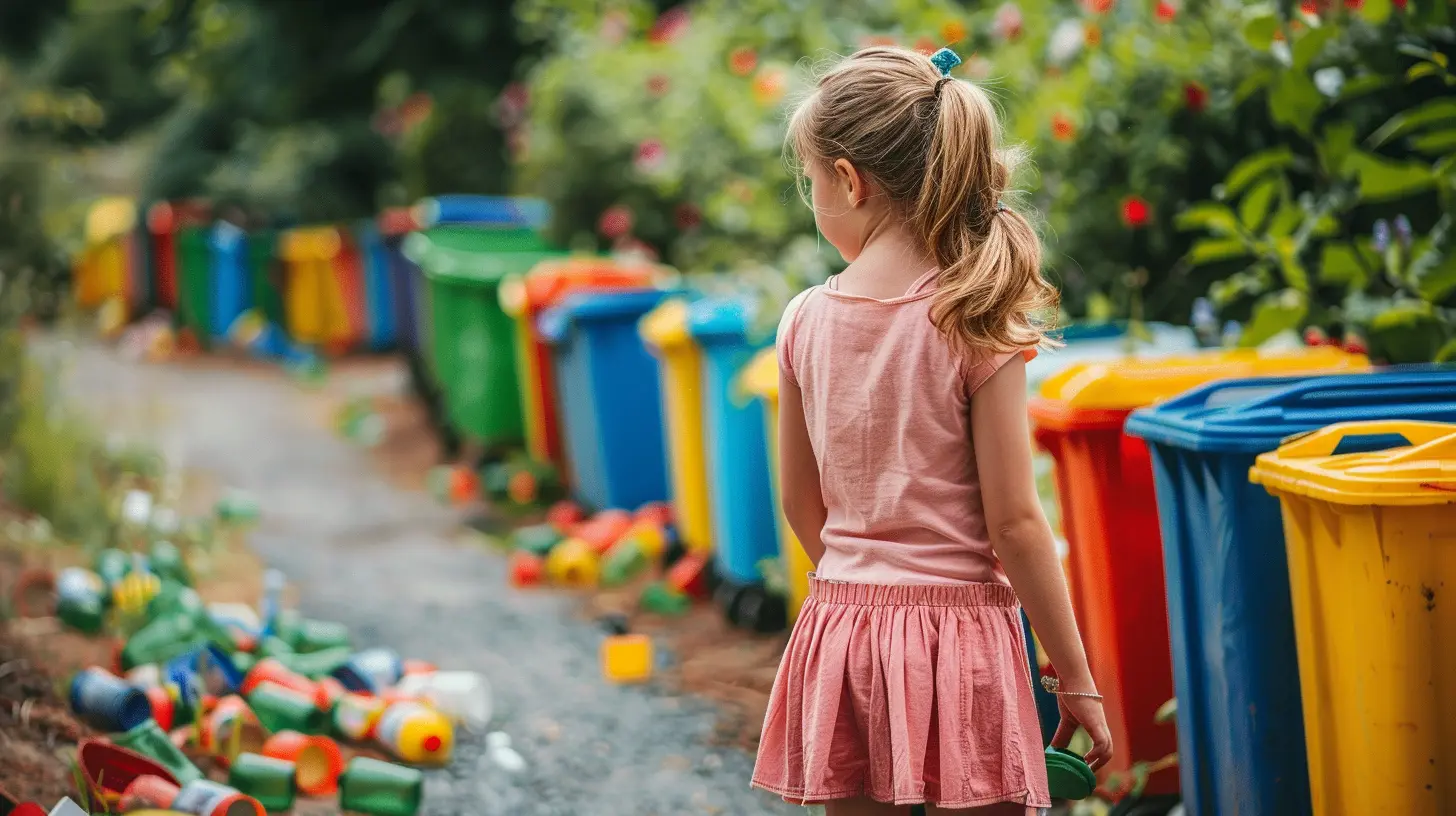
Why Chores Are a Great Way to Teach Sustainability
First off, why choose chores as a method to teach sustainability? Well, chores are already a part of your family’s routine. They’re familiar tasks that your kids are doing (or at least should be doing!) on a daily or weekly basis. By tying these tasks to lessons about sustainability and recycling, you can reinforce these concepts in a practical, hands-on way.Chores also offer a natural connection to the environment. Think about it: What’s more connected to sustainability than managing resources, reducing waste, and reusing what we already have? Teaching kids how to make thoughtful decisions during chores shifts their mindset from, "I have to clean my room" to "I’m reducing waste and making my space more sustainable."
The Power of Modeling Behavior
Kids learn best when they see the behavior being modeled for them. That’s one of the reasons chores are such a fantastic teaching tool. As your child helps with sorting the recycling, conserving water, or even composting food scraps, they’re watching you engage in these habits. When they see you prioritize sustainability, they’re much more likely to adopt it themselves. You’re not just telling them what to do; you’re showing them what it looks like to live sustainably.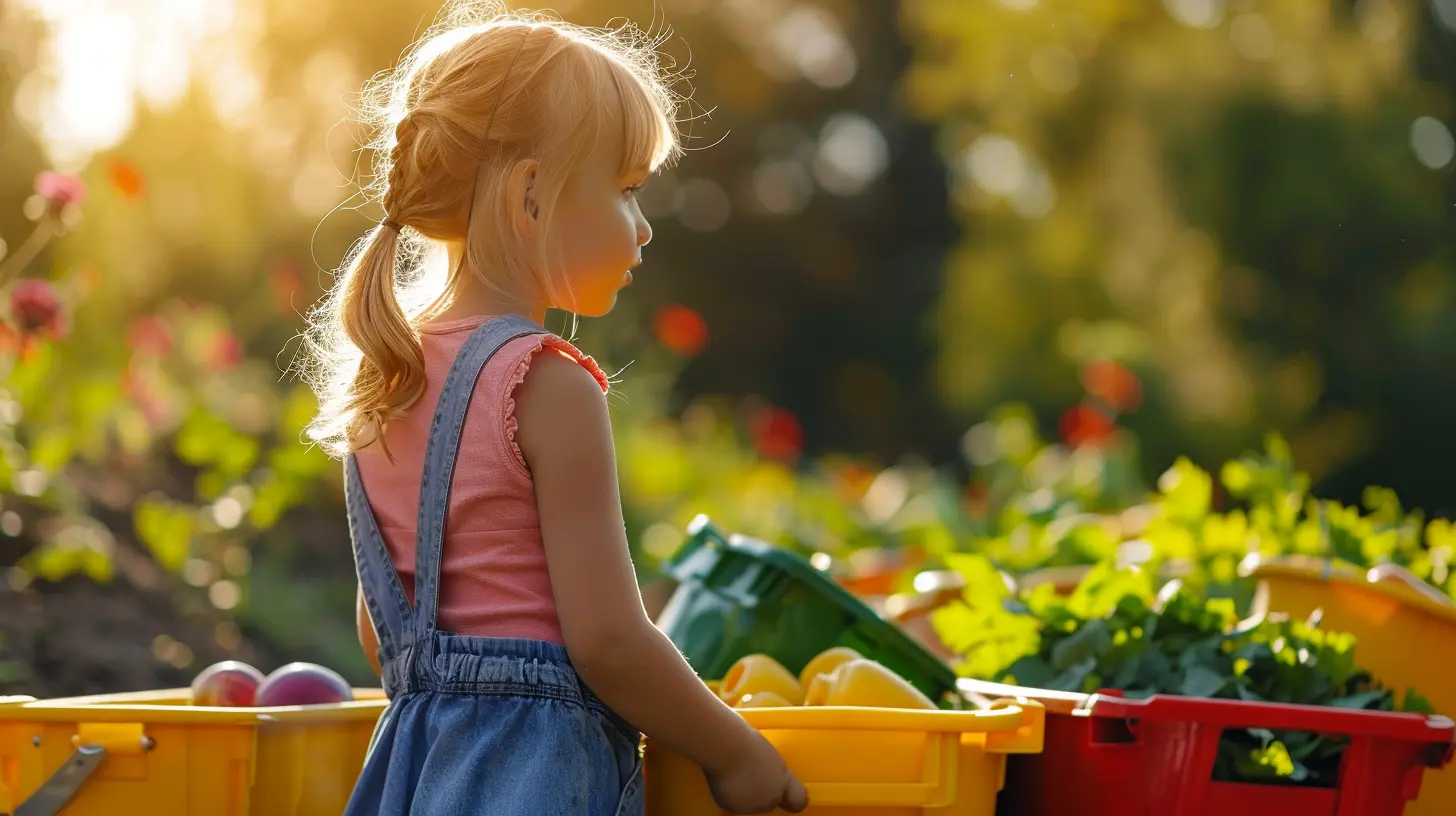
How to Incorporate Sustainability into Different Chores
Now that we know why chores make a great teaching tool, let’s explore how to incorporate sustainability into different household tasks. Below are some common chores and suggestions on how you can turn them into eco-friendly learning moments.1. Cleaning Their Room – Emphasizing Minimalism and Reusing
Cleaning a room seems like a pretty basic task, right? But there are so many ways to weave in lessons about sustainability!How to Approach It:
When your kids are organizing their stuff, talk to them about the importance of having fewer things. Explain that having less not only makes cleaning easier but also reduces the waste that comes from buying unnecessary items. Encourage them to donate old toys, clothes, or games. This is a perfect opportunity to introduce the concept of reuse. Tell them, "By donating, you’re giving these things a second life."
Also, if they break something – say, a toy or a piece of furniture – teach them the value of fixing things instead of tossing them out immediately. This helps cut down on unnecessary waste.
Key Talking Points:
- "Less stuff means less waste."
- "When we get rid of things, we should see if others can use them."
- "Fixing broken items instead of throwing them away helps the environment."
2. Sorting the Recycling – Instilling the Habit of Reducing Waste
Recycling is probably the most straightforward chore connected to sustainability, but did you know you can take it a step further?How to Approach It:
Get your kids involved in sorting the recycling! Explain how separating items helps ensure they get properly processed and turned into new things. You could even make a game out of it – challenge them to see if they can recognize which items go in which bin. Over time, they'll develop an eye for separating recyclables from trash.
This is also a great opportunity to teach the concept of reducing waste before it even happens. When grocery shopping, for instance, talk about choosing products with less packaging or opting for items that come in recyclable containers.
Key Talking Points:
- "By recycling, we’re giving new life to old items."
- "Next time we shop, let’s try to avoid things with a lot of packaging."
- "Recycling correctly helps keep trash out of landfills."
3. Watering Plants – Promoting Water Conservation & Gardening
Watering plants is another common chore that offers a perfect intro to sustainability – specifically, water conservation and gardening!How to Approach It:
While your kids are watering plants, explain why we need to be careful with water, especially in areas where water shortages are common. Teach them tips like watering plants in the early evening or morning to prevent evaporation and using recycled water (like from washing fruits or veggies) to nourish plants.
If space allows, you might also consider planting a small garden together. Growing your own vegetables or herbs is a hands-on lesson in sustainability, and it can be so rewarding when it’s time to harvest.
Key Talking Points:
- "Water is a precious resource, so we shouldn’t waste it."
- "Let’s reuse water when we can, like from washing veggies!"
- "Growing our own food helps reduce the need for store-bought items."
4. Taking Out the Trash – Discussing Waste Reduction
Taking out the trash is probably a chore that no one really enjoys, but it can be a great way to get your kids thinking about how much waste your household produces.How to Approach It:
When your child takes out the trash, ask them to notice how full the bin is. Use this as a moment to talk about what’s inside. Are there things that could have been recycled instead of thrown away? Were there items that could have been repurposed or reused?
Over time, your kids will start thinking about waste differently. Instead of just tossing things mindlessly into the trash, they’ll begin to ask, "Does this really need to go in the garbage?"
Key Talking Points:
- "Look at how much trash we have. How can we reduce this?"
- "Was there anything in here that could have been recycled or reused?"
- "Let’s think about how we can make less trash next time."
5. Meal Prep and Cleanup – Reducing Food Waste
Who knew that preparing and cleaning up after meals could be a lesson in sustainability? With the right approach, it absolutely can.How to Approach It:
While prepping meals, involve your kids in planning portion sizes and using up leftovers. Explain that throwing away extra food wastes not only the food itself but also the resources (like water and energy) that went into producing it.
Additionally, teach them how to compost any food scraps. Composting is a great way to reduce food waste, and it helps show kids the full cycle of how food nourishes both us and the Earth.
Key Talking Points:
- "Let’s plan our meals so we don’t waste food."
- "What can we do with these leftovers? Maybe we can repurpose them for tomorrow's lunch."
- "Composting helps turn food waste into something useful again!"
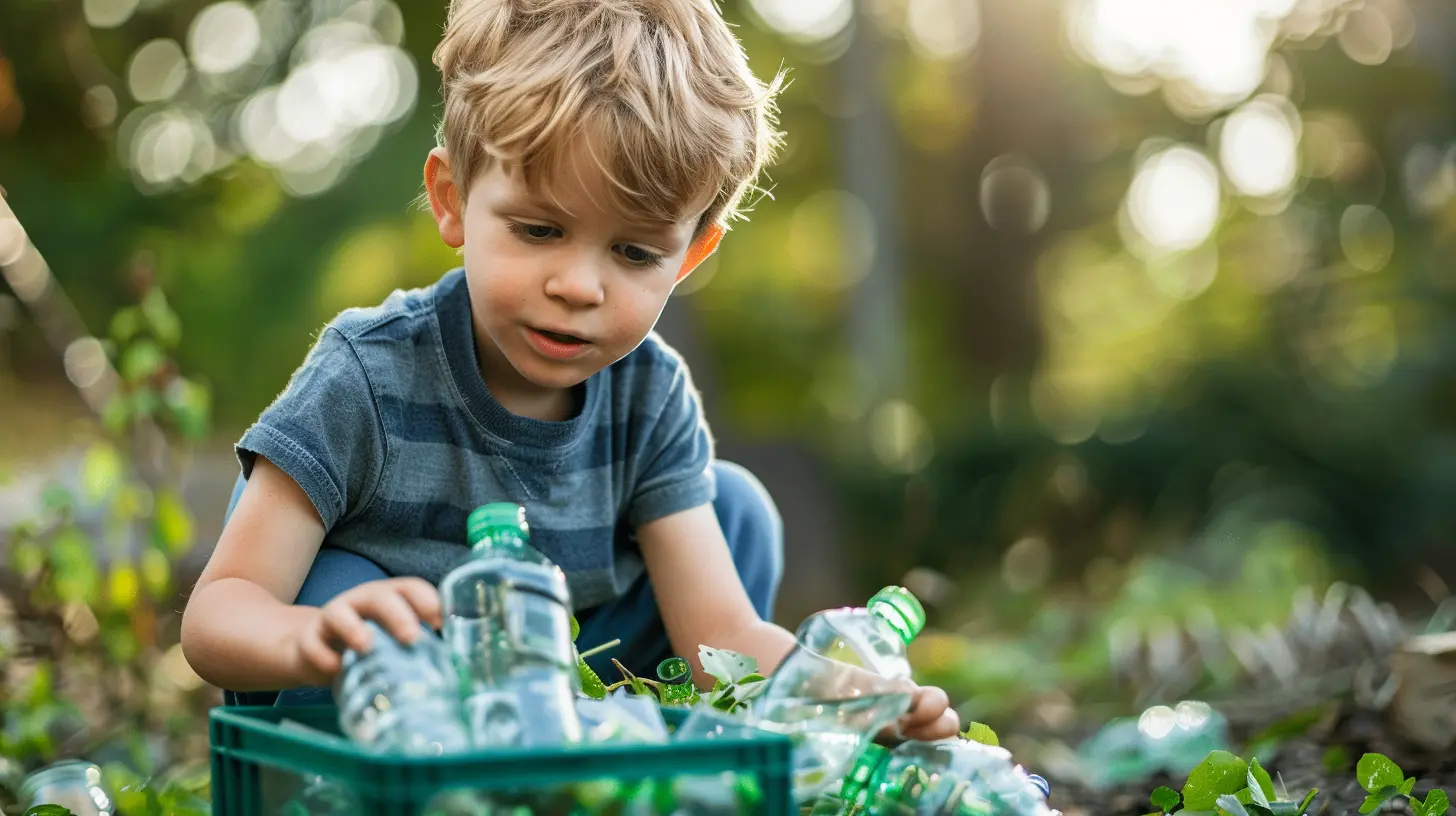
Making Sustainability Fun and Engaging for Kids
We all know that kids are much more likely to embrace something if it’s fun, right? So how can you make chores—and the sustainability lessons they involve—more engaging and enjoyable for them?1. Build Friendly Competitions
Turn sustainability into a little contest. For example:- Who can save the most water in a week?
- Which sibling is the best at sorting recycling?
- Who can come up with the most creative way to reuse or upcycle an old item?
2. Get Creative with DIY Projects
Turn recycling into craft time! Use old jars for organizing small toys, or repurpose boxes to make school projects. This not only teaches the value of reusing but also boosts their creativity.3. Reward Systems
Consider rewarding your kids when they hit sustainability milestones—like a "No Waste Week" or "Master Recycler" badge. Kids love rewards, but just be sure the reward itself aligns with sustainability (maybe a nature hike or planting a new tree together!).4. Eco-Friendly Chore Charts
You can even create a chore chart that focuses on sustainability. For example, tasks like "turn off the lights when you leave a room" or "reuse materials for a craft project" can be regular activities that earn stars or points.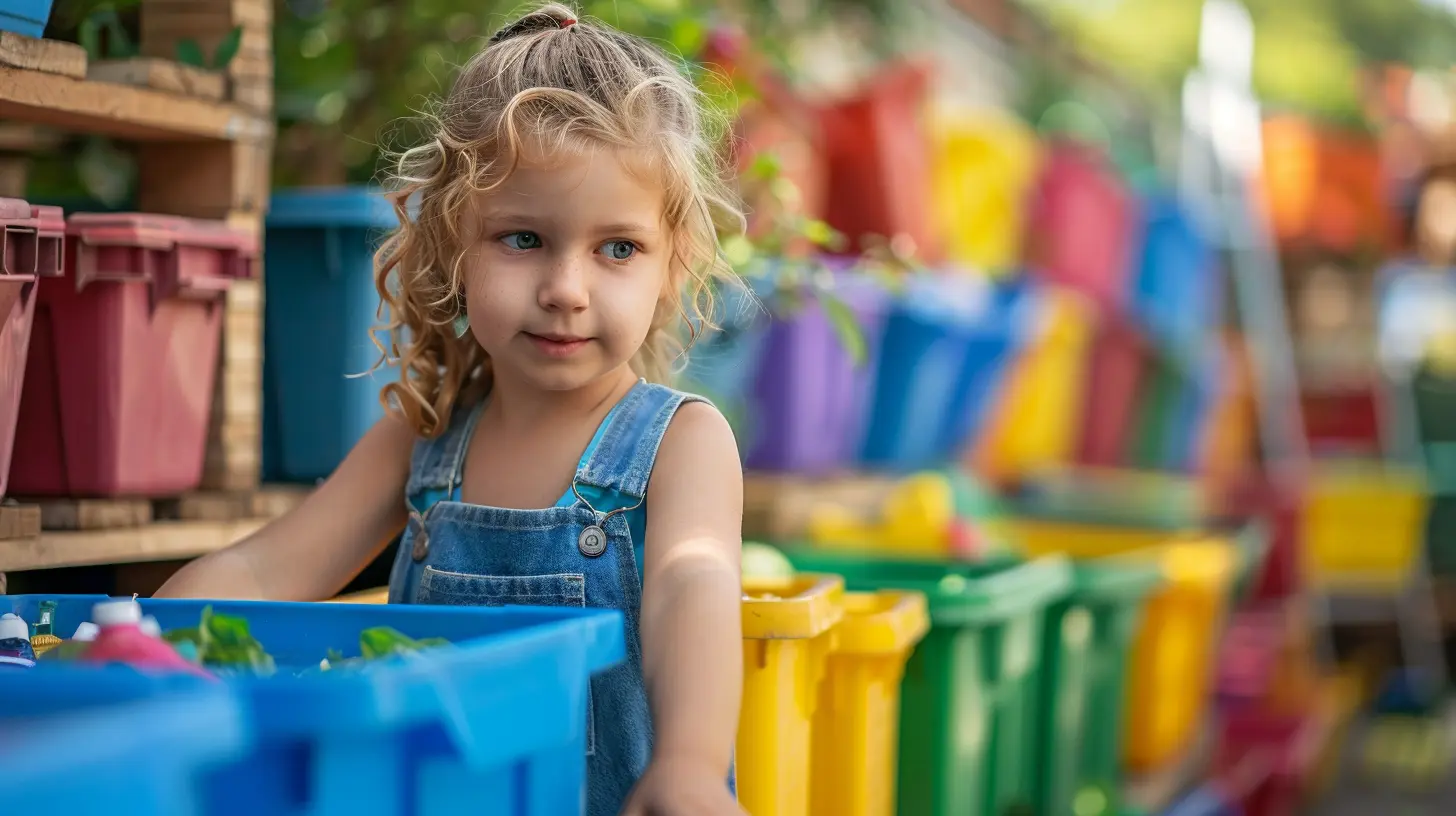
Wrapping It All Up
Introducing sustainability to your kids doesn’t have to mean long, boring lectures. By using chores they already do, you can teach them concepts like reducing waste, recycling, and conserving resources organically and effortlessly. These moments will not only equip them with lifelong habits but will also make them more aware of their environmental impact from an early age.At the end of the day, raising eco-conscious kids is about making sustainability second nature. And the small, everyday lessons they learn now? They’ll carry those into adulthood, fostering a generation that truly cares about the planet.
all images in this post were generated using AI tools
Category:
Kids And ChoresAuthor:

Maya Underwood
Discussion
rate this article
9 comments
Miles Kearns
Chores: The perfect eco-friendly parenting hack!
March 23, 2025 at 5:48 AM

Maya Underwood
Absolutely! Chores not only teach responsibility but also instill sustainable habits in children, making them eco-conscious from an early age.
Amanda McGrath
Who knew chores could be a green superhero training ground? Turning dish duty into eco-lessons—saving the planet while dodging crumbs! Just remember, composting is not a food fight!
March 19, 2025 at 4:43 PM

Maya Underwood
Absolutely! Everyday chores can be fun opportunities for eco-education, turning simple tasks into lessons on sustainability. Let’s keep those green practices rising!
Oliver Phillips
This article brilliantly highlights how chores can be a practical gateway for teaching children about sustainability and recycling. Engaging kids in these responsibilities not only fosters a sense of accountability but also cultivates environmentally conscious habits from a young age.
March 12, 2025 at 4:55 PM

Maya Underwood
Thank you for your insightful comment! I'm glad you found the article highlights the important role chores play in teaching kids sustainability and responsibility.
Pia Perry
Who knew teaching kids about sustainability could be so much fun? Just promise them that sorting socks doesn’t count as recycling—unless they can repurpose them into superhero capes!
March 12, 2025 at 4:19 AM

Maya Underwood
Absolutely! Making chores engaging and imaginative, like turning old socks into superhero capes, not only teaches sustainability but also sparks creativity in kids!
Ramona Newton
Empower your children through chores! Teach them sustainability and recycling—small steps today lead to a greener future!
March 10, 2025 at 3:16 PM

Maya Underwood
Thank you for your insightful comment! Teaching children through chores not only fosters responsibility but also instills valuable lessons in sustainability that can shape a greener future.
Kade Harper
Chores + Sustainability = Fun Learning!
March 8, 2025 at 4:03 AM

Maya Underwood
Thank you! I'm glad you see the connection between chores and sustainability. Making learning fun is key to fostering a sense of responsibility in children!
Savannah Flores
Great idea! Chores can truly inspire eco-conscious habits.
March 6, 2025 at 3:34 AM

Maya Underwood
Thank you! I'm glad you see the potential in chores for fostering eco-conscious habits.
Maxwell Morgan
In the quiet corners of our homes, a world of lessons awaits — where chores transform into gateways of understanding. As children engage in the rhythm of recycling and sustainability, watch as they unravel the mysteries of our planet's well-being. What secrets will they discover in their daily tasks?
March 4, 2025 at 3:27 PM

Maya Underwood
Absolutely! Chores are a powerful tool for teaching sustainability; through hands-on activities, children learn invaluable lessons about our planet and the importance of caring for it.
Charlie McElroy
Absolutely loved this article! Integrating chores with lessons on sustainability and recycling is a fantastic way to instill responsibility in kids. It makes learning practical and fun while fostering a sense of environmental stewardship at an early age.
March 1, 2025 at 5:23 PM

Maya Underwood
Thank you! I'm glad you enjoyed the article and appreciate your insights on the importance of practical learning in fostering responsibility and environmental stewardship in kids!
MORE POSTS
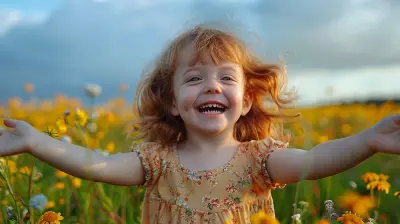
How to Help Your Child Manage Big Emotions
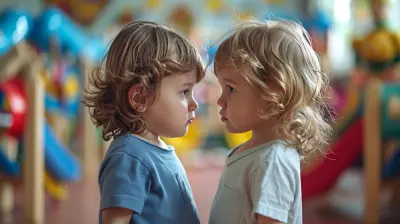
Managing Sibling Rivalry in a Preschool Setting
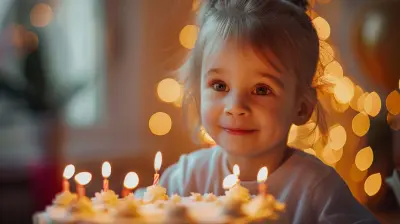
Honoring Milestones: How to Create Traditions for Special Life Moments
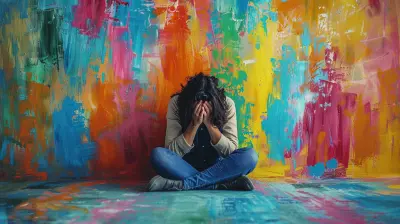
Recognizing Burnout in Parents and How to Recover
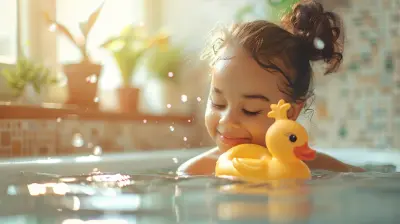
Creating a Fun Potty Training Routine That Kids Love

Preparing Your Child for Adolescence: A Mental Health Primer
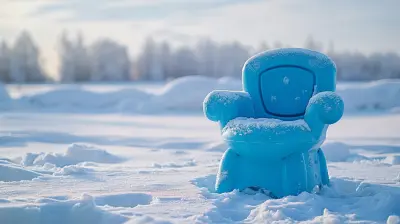
Potty Training In Cold Weather: Challenges and Solutions